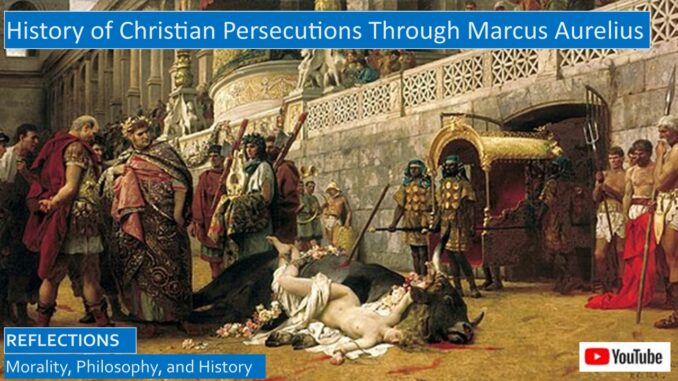
We had previously reflected on the Apologies to the Roman Emperor and Roman Senate by St Justin Martyr and other ancient documents, and we found surprisingly positive references about Marcus Aurelius in both these works and also in the History of the Church by the ancient Church historian, Eusebius, as well as a work attributed to Marcus Aurelius extolling the virtues of Christianity.
Marcus Aurelius, Friend, or Foe, or Both, of Christianity?
http://www.seekingvirtueandwisdom.com/marcus-aurelius-blog-1-friend-or-foe-or-both-of-christianity/
https://youtu.be/-uQxq1O9xSY
Although you will likely not find any competent scholar who will contest that this is a false attribution, but yet the question remains: Was Marcus Aurelius a friend or foe to Christianity?
To reflect further on this question, we have reflected on the biographies of Marcus Aurelius and the Roman Emperors who preceded him. These biographies also offered fresh insights into the life of ordinary Romans during his reign, and further insights into the warrior culture of the ancient world.
(We now prefer the Robin Waterfield translations.)
Roman Emperors Before Marcus Aurelius
https://seekingvirtueandwisdom.com/roman-emperors-before-marcus-aurelius/
https://youtu.be/6i–hVIpg1k
Biography of Marcus Aurelius, Stoic Philosopher and Roman Emperor
https://seekingvirtueandwisdom.com/biography-of-marcus-aurelius-roman-emperor-and-stoic-philosopher/
https://youtu.be/nvWYu8ofhCA
Ordinary Life for Romans Under Stoic Emperor Marcus Aurelius
https://seekingvirtueandwisdom.com/ordinary-life-for-romans-under-stoic-emperor-marcus-aurelius/
https://youtu.be/9hgSbcgbCJw
Ancient Warrior Societies, The Warrior Ethos of Ancient Greece, Rome, and Israel
https://seekingvirtueandwisdom.com/ancient-warrior-societies-blog-1-the-warrior-ethos-of-ancient-greece/
https://youtu.be/7QAZ_s6zw4E
The YouTube video for this blog: https://youtu.be/9THdbyx-jHU
YouTube script with more book links:
https://www.slideshare.net/BruceStrom1/history-of-christian-persecutions-new-testament-through-marcus-aurelius
REFLECTIONS ON CHRISTIAN PERSECUTIONS
How widespread was the Christian persecution under the Roman Empire? Usually it was a local affair, not until the reign of Diocletian was an empire-wide systematic persecution of Christians undertaken. The persecution under Nero was limited to Rome itself. The extent of the local persecution depended on the enthusiasm or cruelty of the local officials, many local officials had no enthusiasm for persecuting the local Christians, turning a blind eye. Overall, the number of persecutions was not huge, rarely were the Christian persecutions systematic, targeting all Christians. Indeed, the Christian martyrs in the twentieth century alone, mostly in Russia, dwarfed the number of Christian martyrs from the preceding nineteen centuries combined.
The Christian persecutions in the Roman Empire were sporadic and dependent on local enforcement, even under the Empire-wide persecutions under Diocletian. Indeed, there were so few Christians in the early centuries after Christ that the early Roman emperors, and the Five Good Emperors through Marcus Aurelius, had very little to do with Christians, and had almost no personal contact with Christians. Nero famously viciously persecuted Christians, but there was little desire by succeeding emperors in this period to seek out Christians for active persecution. The persecutions were rarely systematic where all Christians were swept up and brought in, persecutions depended on informers: the Roman Empire had neither the inclination nor the administrative capability to attempt something like the Holocaust in Nazi Germany or even the periodic racial cleansing massacres we see in modern times.
Christians Under Hitler’s German Nazi Regime
http://www.seekingvirtueandwisdom.com/christians-under-hitlers-german-nazi-regime/
https://youtu.be/QP9UR8fqfvs
Crimes against religion carried an automatic death penalty in the Roman Empire. Many Romans thought that the Christians blasphemed the gods, disrupted the bonds that held society together, and were therefore considered treasonous, since they challenged the sacred authority of the emperor, who was Pontifex Maximus, the supreme pontiff of Roman religion, a pagan pope. The draconian and cruel enforcement necessary to suppress the incredibly large slave class bled over into the treatment of Christians. Whenever the Roman Empire encountered stresses such as military defeats or plagues or calamities, many Romans thought that the gods were angry at those who withheld their sacrifices, causing the gods to withhold their protection of Rome.
The often-unnoticed motive in any religious persecution or conflict, including the Christian persecutions, the Nazi Holocaust, and even the Protestant Reformation, is greed, envy, and theft. Simply put, if you can condemn your neighbor and have him executed or exiled, or if you can convince them to flee, then you can steal his stuff.
Anthony McGuckin, an Orthodox scholar, notes that: “Martyr is the Greek term for witness, and if a believer was forced to choose between execution and faith, it was regarded as the highest eschatological testimony if that faith endured to the death.” But to the oppressive local authorities, this Christian “perseverance was merely a political annoyance, demonstrating the mental instability or social misanthropy of this new group of zealots.” Roman officials were baffled by Christian intransigence, as state worship was seen as merely a formality.
How did the persecutions mold Christianity? McGuckin describes how the early Church viewed martyrdom. “Martyrs were widely believed to pass immediately from this world to be next to the supreme martyr, Christ, exercising a powerful ministry of intercession on behalf of their local churches. All their sins were forgiven in the shedding of their blood, and they were given a throne of glory, reigning alongside Christ until he came again in glory.”[1]
One consequence of the persecutions was the end of public missionary activity by Christians. Since the persecutions were not systematic, and since there was relative freedom of speech in ancient Rome, Christian intellectuals responded by writing apologies defending the faith, including Tertullian, St Justin the Martyr, and later Origen. St Justin moved to Rome to open a school of Christian philosophy, where he was martyred after he won a public debate with Crescens, a Cynic philosopher.
EARLY CHRISTIAN MARTYRS
There were Christian martyrs from the beginning of Christianity, but in Acts, the Roman officials were acting on the complaints of Jews offended by the missionary activities of the Apostles. The first martyr was St Stephen, stoned by the Jews with Saul, the future St Paul, guarding their jackets, approving but not participating in the persecution.[2]
Eusebius condenses from Acts this account of these early martyrs: “Herod, seeing that martyring James pleased the Jews, clapped Peter in prison, and was about to martyr him also but for divine intervention: in the night an angel stood by him, and he was miraculously released from his fetters and set free for the ministry of preaching, as ordained by heaven.”[3]
But St Paul was permitted to spread the Good News across the Mediterranean world for many years, spending several years in prison, but was able to write epistles and meet with church leaders in long visits even while in prison. St Paul eventually appealed to Rome,[4] and both St Paul and St Peter would be martyred by Emperor Nero.
What was the appeal of Christianity? Christianity’s promise of salvation and an afterlife appealed to women, the poor, and slaves. St Paul in Galatians states: “There is neither Jew nor Greek, there is neither slave nor free, there is neither male nor female; for you are all one in Christ Jesus.”[5] This was the revolutionary Good News. Slaves told their aristocratic mistresses about the new religion, several martyrs were women, which may have titillated the blood-thirsty crowds at the arena. Near the end of Marcus Aurelius’ reign, Christianity was making inroads into the ranks of the Roman army,[6] possibly since the plague lowered the recruiting standards, the army wanted to induct all volunteers.
CHRISTIAN PERSECUTIONS UNDER EMPEROR NERO
The reign of Nero began hopefully, under the guidance of his tutor Seneca, he was a progressive Emperor with sound policies. But his mother Agrippina sought to be the power behind the throne, murdering her political rivals. As he became drunk with power himself, Nero’s relationship with his mother deteriorated.[7]
Eusebius recounts, “When Nero’s power was firmly established, he gave himself up to unholy practices and took up arms against the God of the universe.” “His perverse and extraordinary madness led him to senselessly destroy innumerable lives. In his lust for blood, he did not spare even his nearest and dearest, but in various ways did away with mother, brothers, and wife alike, and countless other members of his family,” as well as his former tutor and Stoic philosopher Seneca, “as if they were personal and public enemies.”[8]
Fire broke out in Rome in 64 AD, the fire burned out of control for over a week, the fire consumed three-quarters of the building in the city of Rome. Multi-story wooden apartments were packed behind the city walls, there had been many less destructive fires in Rome the previous century. The Roman historian Tacitus did not believe the rumors that Nero had started the fire to clear space for his new palace. Nero needed a scapegoat to blame. [9] Nero’s evil second wife, Empress Poppaea, who had urged him to murder both his first wife and his mother, protected the Jews and advised Nero to scapegoat the Christians, blaming them for the fire destroying Rome.[10]
The Roman historian Tacitus, in his Annals, says this about Nero’s persecution of the Christians: “But all human efforts, all the lavish gifts of the emperor, and all the sacrificing to the gods, did not banish the sinister popular belief that the fire was ordered by Nero. To destroy this rumor, Nero fastened the guilt and inflicted the most exquisite tortures on a class hated for their abominations, called Christians by the populace.”
Tacitus continues, “At first, those who confessed were arrested. Then, on their evidence, a huge multitude was convicted, not so much of the crime of fire than for hatred of mankind. These deaths were accompanied by derision: covered in animal skins they were to perish torn by dogs, or affixed to crosses to be burnt as torches when the sun set. Nero offered his gardens for the show and staged games in the Circus, mixing with the crowd in the garb of a driver riding a chariot,” which was behavior not befitting an emperor. “This roused pity. Although guilty and deserving of extreme measures, the Christians’ annihilation seemed to arise not from public utility but for one man’s brutality.”[11]
In addition to martyring many Christians, Nero also tormented and murdered many Senators and others in Rome. Finally, there was a conspiracy of the Pretorian Guard, and with the approval of many Senators, Nero was compelled to commit suicide.
After the death of Nero was the tumultuous year of the four emperors, where emperor overthrew emperor in quick succession. We know some Christian persecution persisted, as St Polyclitus of Rome was martyred under Emperor Galba.[12] Finally, the fourth emperor that year, Vespasian, restored stability to the Roman Empire.
JEWISH UPRISINGS UNDER VESPASIAN AND TITUS
Nero asked general Vespasian to subdue the Jewish rebels of the Holy Land in the twelfth year of his reign. Eusebius tells us that on their defeat, “thousands and thousands of men of every age, and women and children, perished by the sword, by starvation, and by countless other forms of death.” Finally, “the Abomination of Desolation announced by the prophets was the end of the very Temple of God, once world-renowned, when it was utterly destroyed by fire.”
Warned by an oracle, the Christians had left Jerusalem and settled in a town in Peraea called Pella.[13] Josephus had reported that famine and the sword destroyed 1,100,00 people, and 90,000 children under seventeen were enslaved.[14]
In the political turmoil that followed the death of Nero, Vespasian tasked his son Titus to continue the siege against the Jewish rebels while he traveled to Rome. He was the fourth emperor in the Year of Four Emperors, he stabilized the Empire, and his sons Titus and Domitian succeeded him as Emperor. There were minimal persecutions during the reign of Vespasian and Titus, but they increased under Domitian.
Why did the Romans persecute the Christians but not the Jews, who staged several bloody revolts? Professor Kenneth Harl of Wondrium argues that the Romans understood armed rebellion, and respected those who challenged them in battle. But the Romans were baffled by the Christians, who never revolted, but nevertheless made a show of not sacrificing to the gods, which risked angering the gods.[15]
CHRISTIAN PERSECUTIONS UNDER EMPEROR DOMITIAN
Domitian’s persecutions were more focused than those of Nero. Although most Christians were drawn from the lower classes, Domitian was alarmed that Christianity was appealing to some aristocrats because of its “Jewish ideas in morality and worship.” Unlike most previous emperors, except for Caligula and Nero, Domitian encouraged his subjects to view him as ‘Master and God,’ and suspected treachery if anyone refused to so swear, causing issues with both Christians and Jews.
According to McGuckin, “Domitian despised the Christians as eroding traditional Roman values and traditions among the very class who were supposed to uphold them as guardians of Roman culture. Domitilla, the emperor’s niece, was possibly a Christian and was exiled to the island of Ponza, where her cell became a church cult center in the fourth century.”
Roman law at this time clarified the legal distinction between Judaism and Christianity. As McGuckin states: “Jewish religion was given favored status under Roman law: it was held to be unique, morally refined, and sufficiently reverential they prayed for the well-being of the emperor. Christianity, on the other hand, was increasingly regarded as a religion of the lower classes, advocating the worship of a condemned criminal who had taught a revolutionary idea of love and freedom: dangerous ideas that had no regard for traditional religious rites, the divine authority of emperors, or the sustenance of the status quo.”[16]
JEWISH UPRISING AND CHRISTIAN PERSECUTIONS UNDER TRAJAN
Nerva was the first of the five good emperors of Rome, there were no major persecutions during his short reign of less than two years. Eusebius reports that under his successor, Trajan, Christians were not hunted down. Trajan did not like his cult being made a compulsory test of loyalty.
Pliny the Younger, governor of the troubled Eastern province that is now Turkey, asks Trajan for advice on how to handle the Christian problem. There were imperial rescripts that made Christianity illegal, but with insufficient guidance on how to enforce this. Pliny asked for Trajan’s approval for the policy he had devised: if anyone was accused of being a Christian, gave them a chance to recant, warning them that capital punishment faced them if they did not. If they denied being Christians, he then asked them to invoke the Olympian gods and make a sacrifice of wine and incense before statues of the gods, reviling the name of Christ.
In Eusebius’ account, Pliny wrote Trajan that the Christians “did nothing improper or illegal: all they did was to rise at dawn and hymn Christ as a god, to repudiate adultery, murder, and similar disgraceful crimes, and in every way conform to the law. Trajan’s response was to issue a decree that members of the Christian community were not to be hunted, but if discovered, were to be punished.”[17] Anonymous accusations should be disregarded.
Persecutions of Christians did not cease. Eusebius tells us Bishop Ignatius of Antioch “was sent from Syria to Rome and became food for wild animals.” Although under military guard, he was permitted to meet with and correspond with the Christian communities in each city where he stayed. “In particular, Ignatius warned them to guard most carefully against heresies,” “and urged them to hold fast to the apostolic tradition.”
Eusebius quotes Ignatius’ epistle to the Romans: “May it be for the good that the wild animals are ready for me: I pray that I may find them prompt. I shall coax them to devour me promptly.” “If they are unwilling and refuse, I will compel them to do it.” “Let fire and cross, encounters with wild animals, tearing apart of bones, hacking of limbs, crushing of the whole body, tortures of the devil come upon me, if only I may attain to Jesus Christ!”[18]
This enthusiasm for martyrdom worried these early Church fathers. They became concerned at the enthusiasm of immature Christians who desired to be soldiers of the faith, spitting at idols, disturbing pagan rites, eager to turn themselves in for martyrdom. Sometimes they lost their nerve and apostatized, which did help the cause of the faith. An early church council emphasized that Christians should keep quiet and try to avoid persecution, but if informers did cause them to be handed over to the authorities, then they were to proclaim their faith in Jesus.
During the persecutions in the arena, often they reenacted various pagan myths to torment the Christians. In one painting, Nero had the myth of Dirce reenacted. In this myth, the guilty lady was tied to the head of a bull, who eventually killed her.[19]
CHRISTIAN PERSECUTIONS UNDER HADRIAN
Pliny may have set a precedent on how to treat Christians, request that they sacrifice to the gods, and release them if they complied. All that was needed was an informer and a sympathetic governor to bring charges against Christians. Christians tried to avoid this dilemma by sending their slaves to sacrifice on their behalf or fleeing, often to live in the desert as hermits. Many simply bribed the court officials.
Hadrian, successor to Trajan, corresponded with the proconsul of Asia in 125 AD. concerning Christians who were facing trumped-up criminal charges. McGuckin states that “Hadrian urged the proconsul not to pander to local mob outcries against the Christians and to prosecute them only if they committed crimes proven under trial. Hadrian went so far as to give the Christians the right to cross-examine those who denounced them and even prosecute their detractors under the laws of calumny.” In this respect, Hadrian shielded Christians from injustice.[20]
The last bloody Jewish revolt erupted in the eighteenth year of Hadrian’s rule, the Bar Cochba revolt. This revolt was caused, in part, by the erection of a pagan temple on the Temple Mount, as Jews had previously been excluded from Jerusalem after a previous rebellion, and by other Roman insensitivities to Judaism.
Eusebius says that “Bar Cochba means a star, but he was a bloodthirsty bandit” who “paraded himself as a luminary come down from heaven to shine upon the Jews’ misery.” “The Roman blockade lasted so long that hunger and thirst brought the revolutionaries to complete destruction, and the instigator of this crazy folly paid the penalty he deserved. From that time on, the entire Jewish race has been forbidden to set foot anywhere in the vicinity of Jerusalem,” and it was colonized by foreigners.[21]
CHRISTIAN PERSECUTIONS UNDER ANTONINUS PIUS AND MARCUS AURELIUS
Antoninus Pius shared power with Marcus Aurelius during the last decade of his reign, Marcus was named consul, and over time Marcus assumed more authority, guaranteeing a smooth transition. Antoninus Pius had little to do with the Christians, apart from wondering whether they displeased the gods, leading to the natural disasters the empire was facing.
Why did the Christian persecutions increase under the reign of Marcus Aurelius? In pagan societies, you bribed the gods with sacrifices and occasional public prayers so they would not do you any harm and protect the community from disasters. Many pagans felt that if even just a few in the community did not do their civic duties and offer sacrifices, the gods would be angry and withhold their favor. There were many disasters and challenges facing Rome under Marcus Aurelius, the Tiber had a major flood, the Antonine plague was raging, wiping out a tenth of the population, and Rome lost many casualties in the blazing wars both in Parthia Persia and in Marcomannic Wars fought both in Northern Italy and Germania.[22] There were small-scale Christian persecutions in Rome itself, but there were also broad and vicious persecutions in the provinces, including Gaul and North Africa.
An early wave of persecution swept Asia in the year 155, Polycarp was the most famous of these martyrs. Eusebius says he was a disciple of St John the Apostle. He did flee to a neighboring farm, where, as Eusebius recounts, “he remained with a few companions, devoting himself night and day to constant prayer to the Lord, pleading and imploring that God would grant peace to the churches throughout the world.”
When the Roman soldiers found him, Eusebius tells us that “Polycarp came down and talked to them in the most cheerful and gentle manner.” “They could hardly believe their eyes when confronted with his advanced years and dignified confident bearing. Why, they wondered, was there such anxiety to arrest an old man who is so kind?”
Eusebius continues, “Polycarp ordered the table to be laid for them immediately and invited them to eat as much as they liked, asking in return for a single hour in which he could pray unmolested. Leave being given, he stood up and prayed, full of the grace of the Lord, to the amazement of those who were present and heard him pray, many of them indeed distressed now by the coming destruction of an old man so dignified and godlike.”[23]
Eusebius recounts his martyrdom after he was allowed to offer up a prayer. “When Polycarp had offered up the Amen, the men in charge lit the fire, and a great flame shot up. Then we saw a marvelous sight.” “The fire took the shape of a vaulted room, like a ship’s sail filled with wind, and made a wall round the martyr’s body, which was in the middle not like burning flesh but like gold and silver refined in a furnace. Indeed, we were conscious of a wonderful fragrance, like a breath of frankincense or some other costly spice. At last, seeing that the body could not be consumed by the fire, the lawless people summoned an official to come forward and drive home his sword. When he did so, there came out a stream of blood that quenched the fire, so that the whole crowd was astonished at the difference between the unbelievers and the elect.”[24]
What were Marcus Aurelius’ policies towards Christians? McLynn has these observations, which were in response to the challenges faced by the empire: the plague, the flooding of the Tiber, and two unwanted military conflicts.
- Early in his reign, he issued a decree mandating the worship of the Olympian gods, which was not likely directed at the minuscule Christian sect.
- Another decree ordered exile to an island for anyone who tried to invoke terror of the gods, which Tertullian mentions.
- There is less conclusive evidence that he encouraged provincial governors to vigorously enforce the law against treasonable sects.[25]
Many of Marcus Aurelius’ Mediations remind us of New Testament teachings, in particular: “Love of one’s neighbor and truth and modesty are a property of the rational soul.” But unfortunately, several passages in his Meditations seem to confirm that Marcus Aurelius did witness Christians being martyred in the arena, and was not impressed, and he also criticizes a key Christian doctrine, the Resurrection of the Body. We quoted these passages in our reflections in our Friend or Foe video.
Marcus Aurelius Blog 2, Others will be irritating, but not I!
http://www.seekingvirtueandwisdom.com/marcus-aurelius-blog-2-others-will-be-irritating-but-not-i/
Marcus Aurelius Blog 3 Genuine Friends Don’t Keep Scorecards
http://www.seekingvirtueandwisdom.com/marcus-aurelius-blog-3-genuine-friendships-have-no-scorecards/
Marcus Aurelius Blog 4 Be critical of yourself, be gracious towards your neighbor
http://www.seekingvirtueandwisdom.com/marcus-aurelius-blog-4-be-critical-of-yourself-be-gracious-towards-your-neighbor/
Marcus Aurelius Blog 5 Seeing life’s misfortunes through the eyes of our neighbor
http://www.seekingvirtueandwisdom.com/marcus-aurelius-blog-5-seeing-lifes-misfortunes-through-the-eyes-of-our-neighbor/
Marcus Aurelius: Meditations: Stoic View of Life
https://youtu.be/0qHpReZYhv4
Marcus Aurelius and Christian Persecutions: Friend or Foe?
http://www.seekingvirtueandwisdom.com/marcus-aurelius-blog-1-friend-or-foe-or-both-of-christianity/
https://youtu.be/-uQxq1O9xSY
The historian McLynn states that in the early years of Marcus Aurelius’ reign, the Christian persecutions were more draconian. He provided the example of a brutal case in Rome of a Christian named Carpus who not only refused to sacrifice to the gods, but also called the gods demons. He was hung up on a meat hook and flayed, and when he would not recant, he was nailed to a stake and set on fire. This hideous torture had not been commonly seen since Nero’s persecution.
McLynn said that what was new was that now Christians were deemed to have committed other crimes because they were blasphemers, but the cases he cites do not support this argument. The case cited, which happened in Rome, involved a husband angry at his wife who was trying to divorce him. He denounced her instructor as Christian and hounded the court until they executed him for being a Christian. This gives us a glimpse into why some people would become informers.
In the year 165, before Marcus Aurelius departed for the Marcomannic Wars in Germania, Rusticus was the prefect in Rome overseeing the case against St Justin Martyr. He had been one of Marcus Aurelius’ tutors, he encouraged him to abandon the study of rhetoric to concentrate on Stoic philosophy.
St Justin had penned two apologies defending Christianity, one he addressed to the Emperor, the other he addressed to the Roman Senate. During this time, he moved to Rome itself, opened a school of philosophy, and then engaged in a fatal debate with the Cynic philosopher Crescens. Although there is no historical record that Marcus Aurelius was aware of these apologies, but due to his close ties with Rusticus, and this public debate with Crescens, it would be logical that our Stoic Emperor did read these apologies. Another puzzle is that Justin had denounced Stoicism in his works, but whether he was condemning the more carnal Greek Stoicism or the more ascetic Roman Stoicism is unclear.
St Justin got the best of Crescens in a debate over Christianity. McLynn notes that “Crescens taught that if Christians welcomed death and martyrdom, they should kill themselves. Justin reported that the two were not the same and that mass suicide meant that the word of God would not be spread. Crescens further jibed that if God was on the side of the Christians, he would protect and rescue them, but Justin replied that since God permitted free will, and thus evil and demons, he had also allowed evil men like Crescens to rise up.” Then “Justin and his five companions were scourged with whips and beheaded,” after assuring Crescens that “if we are punished, we shall be saved.”[26]
One of the rare systematic persecutions where entire parishes were martyred occurred in Lyons in Gaul, current day France, in 177 AD. Eusebius tells us that the Roman officials “swooped on us with all their might,” “leaving no stone unturned.” Christians were “barred from houses, baths, and the forum,” and were forbidden to be seen in public. The Christians were beaten and tortured, some died before they were led into the arena.”
Eusebius continues, “the arrests went on, and day after day those who were worthy filled up the number of the martyrs,” including all active members of two dioceses “who had done most to build up church life.” They were subject to the rack, whips, mauling by beasts, hot iron chairs to roast the flesh, ten pages describe their torments. Christians who were Roman citizens were not beheaded; they suffered the same torments as the others.
At the end, Eusebius informs us, “the martyrs’ bodies, after six days of exposure,” “were finally burnt to ashes and swept by these wicked men into the Rhone River, so that not even a trace of them might be seen on the earth again. They did this to defeat God and rob the dead of their rebirth, so they would have no hope of resurrection” of their body.[27]
The historian McLynn said that there was an outbreak of persecution in North Africa in 180 AD. The dozen Scillitan martyrs were neither tortured nor tormented in the arena, but were simply beheaded, which was unusual for persecutions.
McLynn makes these observations on Scillitan martyrs:
- The Christians do not blame the emperor for the persecutions, they blame demons.
- The Christians became fanatical, they echoed Tertullian’s sentiment: “Your martyr’s blood is the key to Paradise.”
- The uncompromising nature of many martyrs made it difficult for officials to order lesser penalties, such as hard labor.
- In McLynn’s opinion, the Romans made a tactical error by overemphasizing the need to sacrifice to the Roman gods.[28]
McLynn and Eusebius both say that Commodus was not an active persecutor of Christians. Commodus had developed a taste for the mystery religions, such as the cult of Mithras, and Christianity benefited from this tolerance. However, Eusebius does report that the philosopher St Apollonius was martyred in Rome during his reign.[29]
AFTERMATH OF CHRISTIAN PERSECUTIONS
Martyrdom was seen as an apocalyptic event, many Christians living under the threat of death viewed their time as the end of the world, which certainly was true for many of them. We read about the martyrs under the altar in Revelations:
“When Jesus, the Lamb, opened the fifth seal, I saw under the altar the souls of those who had been slain for the word of God and for the witness they had borne. They cried out with a loud voice, ‘O Sovereign Lord, holy and true, how long before thou wilt judge and avenge our blood on those who dwell upon the earth?’ Then they were each given a white robe and told to rest a little longer.”[30] Revelations was the last book to be admitted to the canon and was written to encourage those who were suffering under these persecutions.
McGuckin notes that the relics of first martyrs, then saints, contained the essence of “divine presence among the early Christians. The very bones were imbued with divine grace and intercessory power. Similar honor was given to the confessors, those who suffered for the faith but who were not martyred. “Their prayers were felt to carry great power before God, and many Christians approached them asking for intercession for the forgiveness of sins.”[31] Relics continue to be honored in Orthodox churches today.
Another long-term consequence of the persecutions is it hardened Christian attitudes toward pagan culture and ritual. This eventually led to the Christian Emperor Theodosius closing the schools of philosophy in Athens that had been established long ago by the Stoic Marcus Aurelius.
DISCUSSING THE SOURCES
The biography of Marcus Aurelius by Frank McLynn has helpful background information on Christian Persecutions under both Marcus Aurelius and his predecessors.
If you want to read just a few of these sources, the Meditations of Marcus Aurelius should be among them. This remarkable work has many Stoic teachings that help prepare the Roman world for Christianity, alongside a few comments that are critical of Christianity.
Another critical ancient source is the History of the Church by Eusebius, the church historian who lived during the reign of Emperor Constantine. There are some historical inaccuracies that are found in most ancient historical accounts, but they don’t detract from the story. His quotes reveal the mindset of ancient Christian leaders.
We always consult Henry Chadwick on the History of the Early Church; he always has interesting points.
Anthony McGuckin has written a remarkable history of the first millennium of the Christian faith, and he has a long chapter devoted to the Christian persecutions. McGuckin discusses the mystery cults, such as Mithras and Cybele, and also Manicheism, which we did not discuss.
We discuss the sources in more depth in our video on the Biographies of Marcus Aurelius, and also in our concluding video on whether Marcus Aurelius Actively Persecuted Christians.
[1] Anthony McGuckin, The Path of Christianity, the First Thousand Years, Blood in the Arena, pp. 117-121.
[2] https://www.biblegateway.com/passage/?search=Acts+7&version=RSVCE
[3] Eusebius, The History of the Church, Book 2, Chapter 9.3, p. 82.
[4] Acts 13-25.
[5] https://www.biblegateway.com/passage/?search=galatians+3%3A28&version=RSVCE
[6] Frank McLynn, Marcus Aurelius, A Life, pp. 266.
[7] https://en.wikipedia.org/wiki/Nero
[8] Eusebius, The History of the Church, Book 2, Chapter 25.1, p. 104.
[9] https://en.wikipedia.org/wiki/Great_Fire_of_Rome
[10] Frank McLynn, Marcus Aurelius, A Life, p. 263 and https://en.wikipedia.org/wiki/Poppaea_Sabina .
[11] Combining quotes from https://en.wikipedia.org/wiki/Tacitus_on_Jesus and Tacitus, Annals, translated by Cynthia Damon (New York: Penguin Classics, 2012, originally 117 AD), Book 15 Chapter 44, pp. 325-326.
[12] https://en.wikipedia.org/wiki/Year_of_the_Four_Emperors and https://en.wikipedia.org/wiki/Polyclitus_(freedman)
[13] Eusebius, The History of the Church, Book 2, Chapter 26, pp. 105-106, and Book 3, Chapter 4, pp. 111-112.
[14] Eusebius, The History of the Church, Book 3, Chapter 7, pp. 105-106, he was quoting Josephus in the prior passages on the Jewish War.
[15] Kenneth Harl, The Fall of the Pagans, Christian Persecutions, XXXX
[16] Anthony McGuckin, The Path of Christianity, the First Thousand Years, Blood in the Arena, p. 123 and Henry Chadwick, The Early Church (New York: Dorset Press, 1986, 1967), p. 26.
[17] Frank McLynn, Marcus Aurelius, A Life, pp. 261-262 and Anthony McGuckin, The Path of Christianity, the First Thousand Years, Blood in the Arena, p. 124 and Eusebius, The History of the Church, Book 3, Chapter 33, pp. 143-144.
[18] Eusebius, The History of the Church, Book 3, Chapter 36, pp. 145-146 and Henry Chadwick, The Early Church, pp. 27-29.
[19] https://en.wikipedia.org/wiki/Dirce
[20] Anthony McGuckin, The Path of Christianity, the First Thousand Years, Blood in the Arena, p. 124 and Frank McLynn, Marcus Aurelius, A Life, pp. 269 and Eusebius, The History of the Church, Book 4, Chapter 9, pp. 162-163.
[21] Eusebius, The History of the Church, Book 4, Chapter 6, p. 157 and https://en.wikipedia.org/wiki/Bar_Kokhba_revolt .
[22] Frank McLynn, Marcus Aurelius, A Life, pp. 291.
[23] Eusebius, The History of the Church, Book 4, Chapter 15, p. 169-170.
[24] Eusebius, The History of the Church, Book 4, Chapter 15, p. 173.
[25] Frank McLynn, Marcus Aurelius, A Life, p. 303.
[26] Frank McLynn, Marcus Aurelius, A Life, pp. 286-290.
[27] Eusebius, The History of the Church, Book 5, Chapter 1, pp. 193-203 and Frank McLynn, Marcus Aurelius, A Life, pp. 291-292.
[28] Frank McLynn, Marcus Aurelius, A Life, pp. 292-295.
[29] Frank McLynn, Marcus Aurelius, A Life, pp. 444-445 and Eusebius, The History of the Church, Book 5, Chapters 21, pp. 228-229.
[30] https://www.biblegateway.com/passage/?search=revelations+6%3A9-11&version=RSVCE
[31] Anthony McGuckin, The Path of Christianity, the First Thousand Years, Blood in the Arena, p. 133.

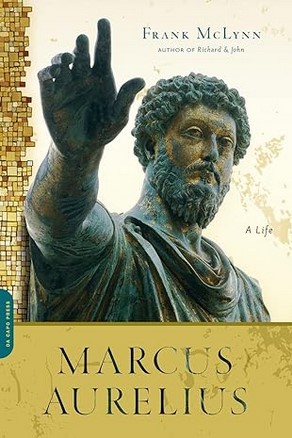
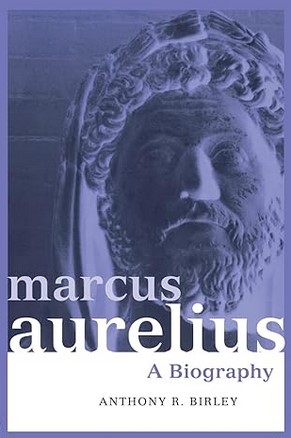
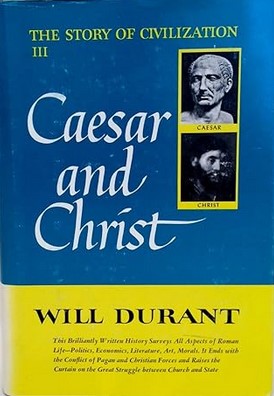
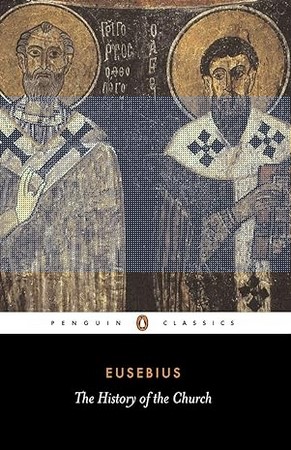
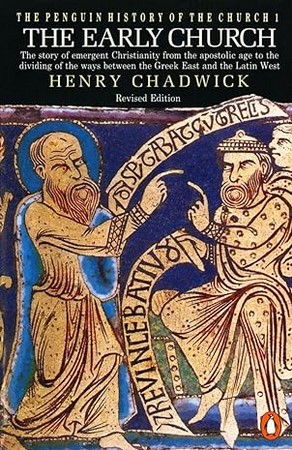
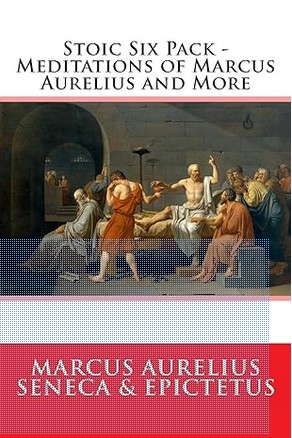
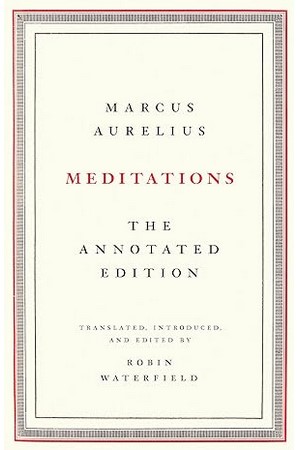

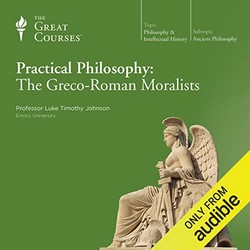
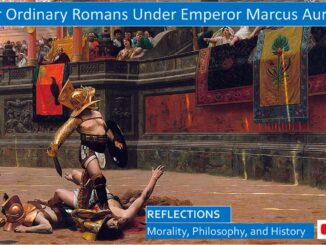
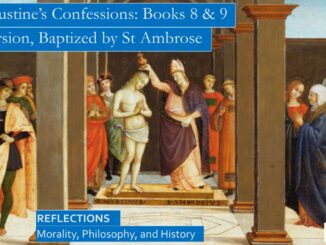
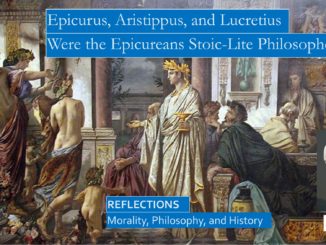
2 Trackbacks / Pingbacks